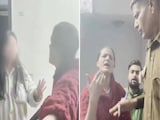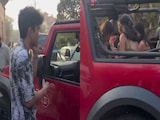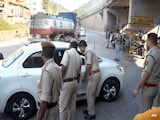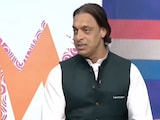US President Donald Trump granted refugee status to nearly 60 white Afrikaners from South Africa, citing unverified claims of a "white genocide." The US processed their asylum requests directly in South Africa and flew them out of Johannesburg on a special chartered flight.
The matter escalated when Elon Musk, South African-born tech mogul and adviser to the President, shared a video of Economic Freedom Fighters (EFF) leader Julius Malema singing "Dubul' ibhunu" ("Shoot the Boer"), claiming it proved political support for white genocide in the country.
At a White House meeting Wednesday, Trump brought up these claims with South African President Cyril Ramaphosa, who denied these allegations.
Who Are The Afrikaners?
Afrikaners are a white ethnic group in South Africa. They are primarily descended from Dutch, German, and French settlers who arrived in the 1600s. They speak Afrikaans, a language closely related to Dutch. Traditionally, many Afrikaners have worked as farmers and are also called "Boers" (which means "farmer" in Dutch).
In 1948, an Afrikaner-led government introduced apartheid, a strict system of racial segregation. It kept black South Africans out of power and gave white people special rights, including land and jobs. Apartheid ended in 1994 with the election of Nelson Mandela.
Today, Afrikaners make up 4 per cent of country's population -- about 2.5 million people.
Is There A White Genocide In South Africa?
No official body, political party, or court in South Africa agrees with that claim. Some white farmers have been killed, but crime in South Africa affects all races. Between October and December 2024, 6,953 people were murdered.
Of those, 12 died in farm attacks. Only one was a white farmer and others were mostly black farm workers.
In a court case, a South African judge called the idea of a genocide "clearly imagined."
What Did South Africa Say?
In the White House meeting, President Cyril Ramaphosa strongly denied any genocide or targeting of white people. He said the people leaving the country "don't want to embrace the changes" brought by democracy.
He reminded Trump that crime affected all races in South Africa and that the government does not confiscate land from white farmers. A recent land reform law aims to fix historic injustices but has faced opposition.
Do Afrikaners Want To Move To The US?
After Trump's offer, 70,000 Afrikaners expressed interest in migrating, though most have stayed. One man who moved said he felt "seen" by Trump.
Not all Afrikaners agree. Some political groups like Solidarity and Freedom Front Plus say they are committed to staying and building a future in South Africa.
Are White People Discriminated Against In South Africa?
While white South Africans still enjoy higher living standards, they now face affirmative action policies aimed at fixing racial imbalances from apartheid. This includes job and promotion targets for black South Africans and rules for businesses to be more racially diverse.
Some white people say these rules make it harder for them to get jobs while the government says it is necessary to address long-standing inequality.
Does Elon Musk Face Discrimination In South Africa?
Elon Musk claimed that Starlink, his satellite internet service, couldn't operate in South Africa because he is "not black." But the truth is, South Africa requires 30 per cent black ownership for telecom licenses, as part of policies to fix past inequalities. Authorities said Starlink never applied for a license.
Why 'Kill The Boer' Is Still Sung In South African Politics
The Economic Freedom Fighters (EFF) sing the song "Shoot the Boer" at their rallies. This song started during the fight against apartheid, the system where white Afrikaners controlled South Africa and treated black people unfairly.
The song is meant as a protest against past and ongoing injustices, especially about land and inequality. Some Afrikaners say it promotes hate and violence, but South African courts say it is a form of political expression, not a real call to violence.















